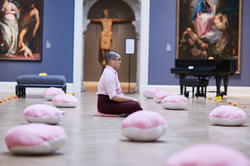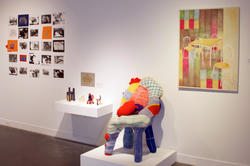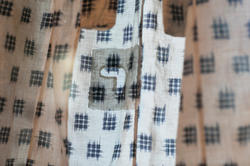Two student projects exploring art and religious expression win Dorner Prize support from the RISD Museum.
Designing Brilliance at the RISD Museum
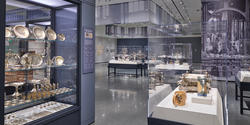
When Gorham Manufacturing opened its doors in 1831, the silver company was located on Steeple Street in Providence, where RISD’s mutli-purpose Washington Place building now stands. So, it’s fitting that Gorham Silver: Designing Brilliance 1850–1970—the most comprehensive exhibition about the historic manufacturer ever mounted—is on view just 100 yards away at the RISD Museum.
Curated by Elizabeth A. Williams, the exhibition showcases 600 Gorham pieces created during the company’s heyday, along with original tools and design drawings—many of them on loan from Brown University’s John Hay Library just up the hill. “We wanted to reach beyond the end product itself—the silver—to also focus on the people who made Gorham what it was within the contexts of social history, design history, industrial history, manufacturing and advertising,” says Williams.
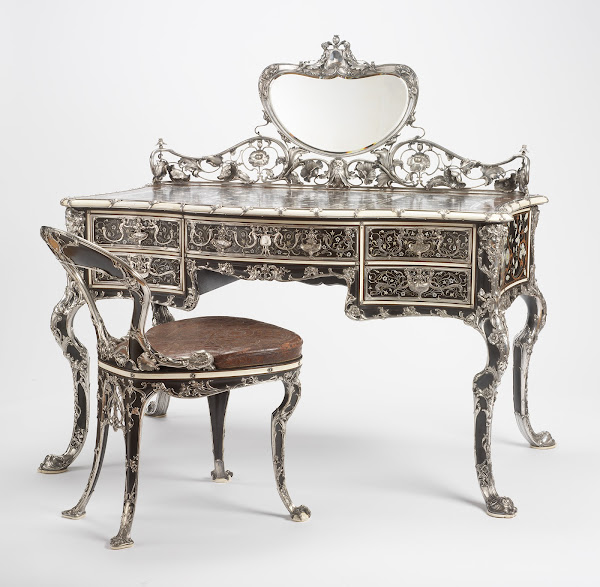
Gorham was perhaps best known for innovating the use of the steam-powered press in its operations, but mechanization was always accompanied by meticulous handwork. The company’s influence in the US and around the world hit full stride in 1850 (as the show’s title indicates) when Mary Todd Lincoln chose a Gorham pattern for use in the White House.
“We wanted to reach beyond the end product itself—the silver—to also focus on the people who made Gorham what it was.”
Thanks to the efforts of countless volunteers who assisted conservator Ingrid Neuman in polishing the vast collection over the past three years, every item was at full shine when the exhibition opened on May 3. An all-day symposium accompanied the opening and explored the evolution of the groundbreaking manufacturing processes devised by Gorham silversmiths, along with their impact on the industry.
Throughout the seven-month run of the exhibition, a series of talks, conversations and in-gallery experiences will complement specially produced audio and video programming created to shed light on these methods. Visitors also learn about Gorham’s innovative marketing efforts and labor practices and the industry’s long-term impact on the environment.
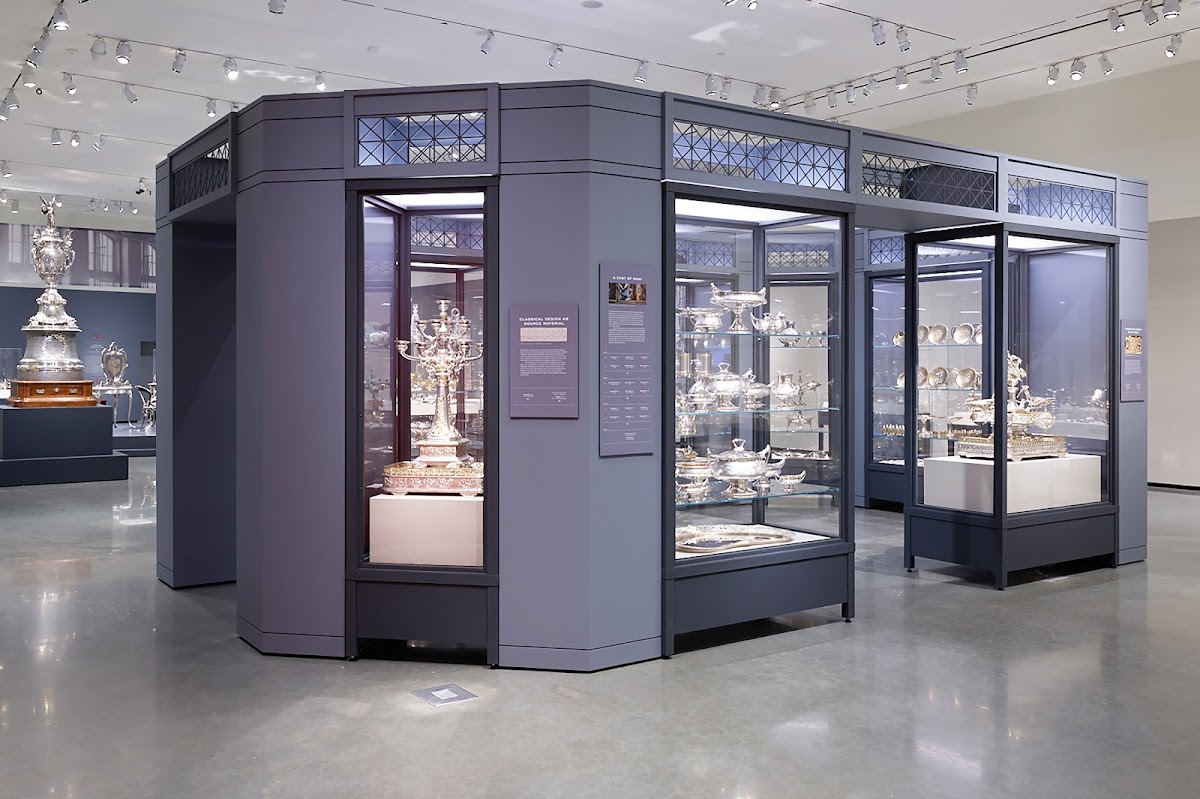
Installed in two galleries, the 6,000-sf exhibition is grounded by a reproduction of Gorham’s pavilion at the 1904 World’s Fair in St. Louis, MO. Inside is one of the most extravagant services ever made, an 816-piece collection of gilded silver created between 1866 and 1880 for Henry Jewett Furber and his wife, Elvira, and reacquired for the company’s corporate collection in 1949.
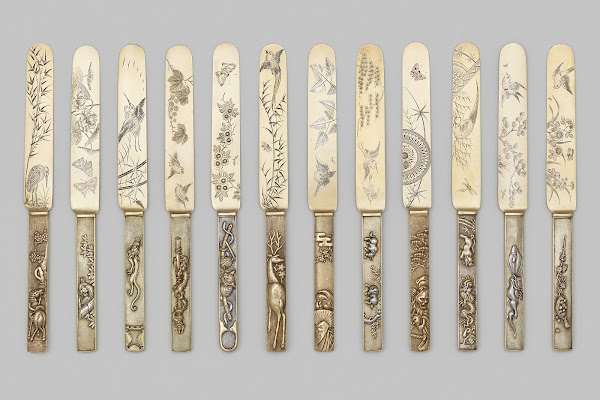
Every object selected for the exhibition highlights the incredible craftsmanship of Gorham’s makers and its designers’ unparalleled imagination. Among the show-stoppers from the museum’s permanent collection: a 1903 art nouveau Martelé writing table and chair that incorporates 47 pounds of silver and took 10,000 hours to complete.
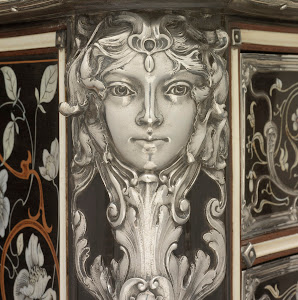
The range of styles reflected in the massive tea and coffee services and flatware sets Gorham created is mind-boggling. The 1927 Cubic Coffee Service, for example, is a great example of the modernist approach that was prevalent at the time and a clear reflection of Picasso’s worldwide influence. Gorham’s designers amassed an extensive collection of art and design reference books as well, which are now housed at the Fleet Library at RISD. “The brand drew its design ideas from trends of the period,” Williams notes, “but it also influenced those trends.”
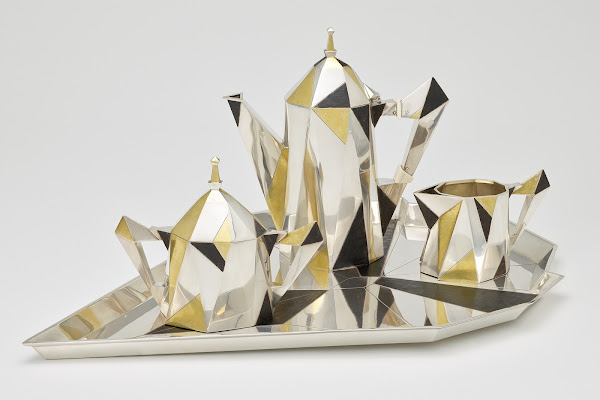
Designing Brilliance continues at the RISD Museum through December 1 and will then travel to the Cincinnati [OH] Art Museum and the Mint Museum in Charlotte, NC. An exquisite 288-page accompanying publication (Rizzoli) featuring recent research and hundreds of images is available for purchase at the museum.
—Simone Solondz
May 8, 2019
